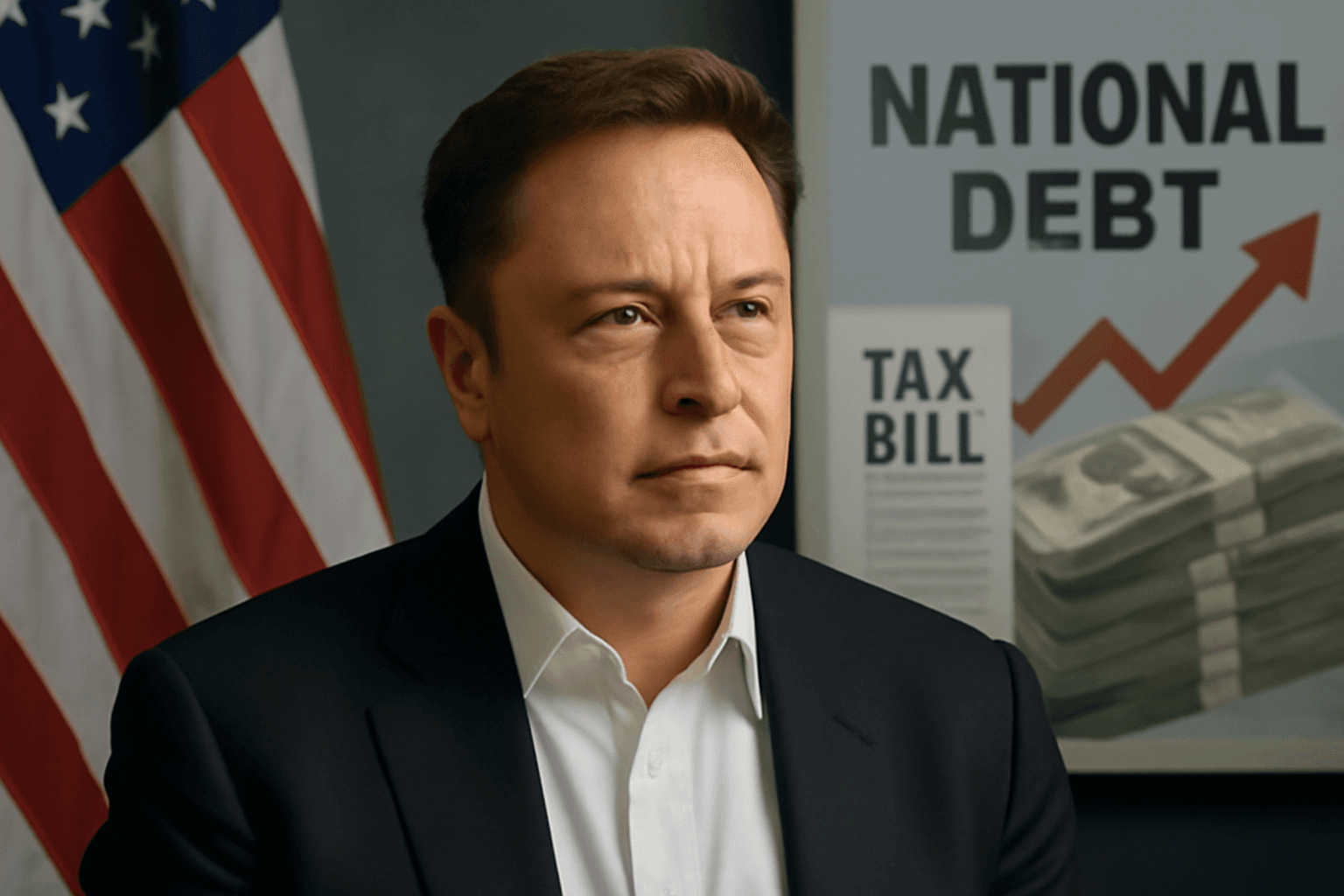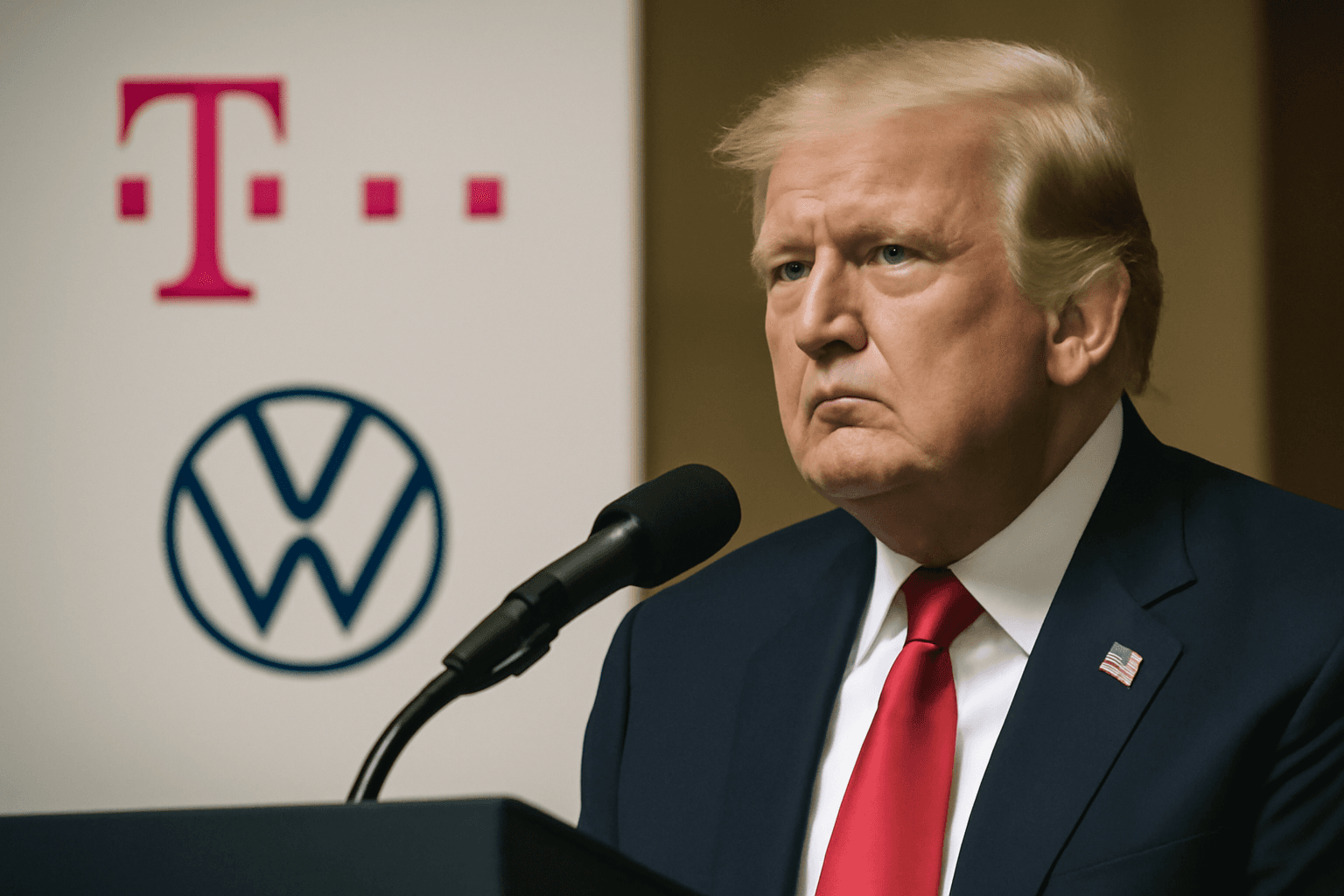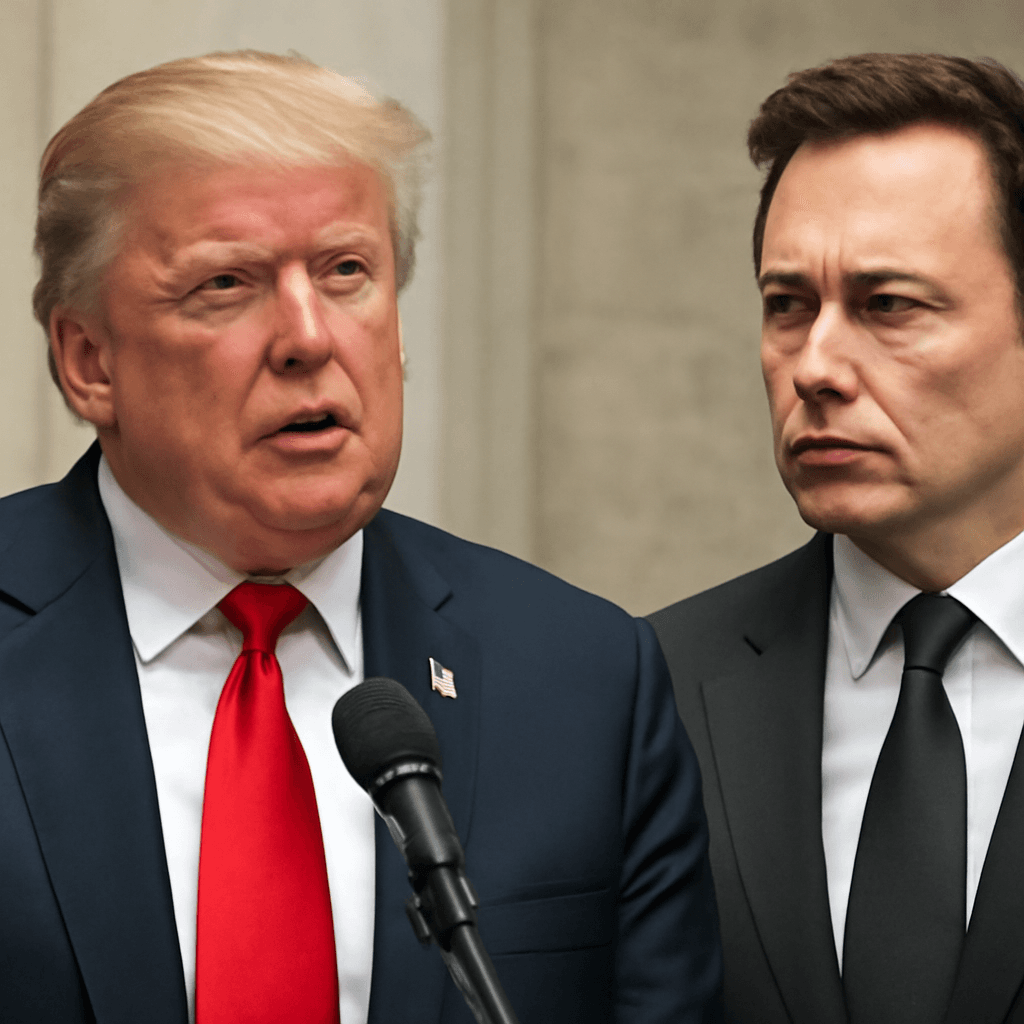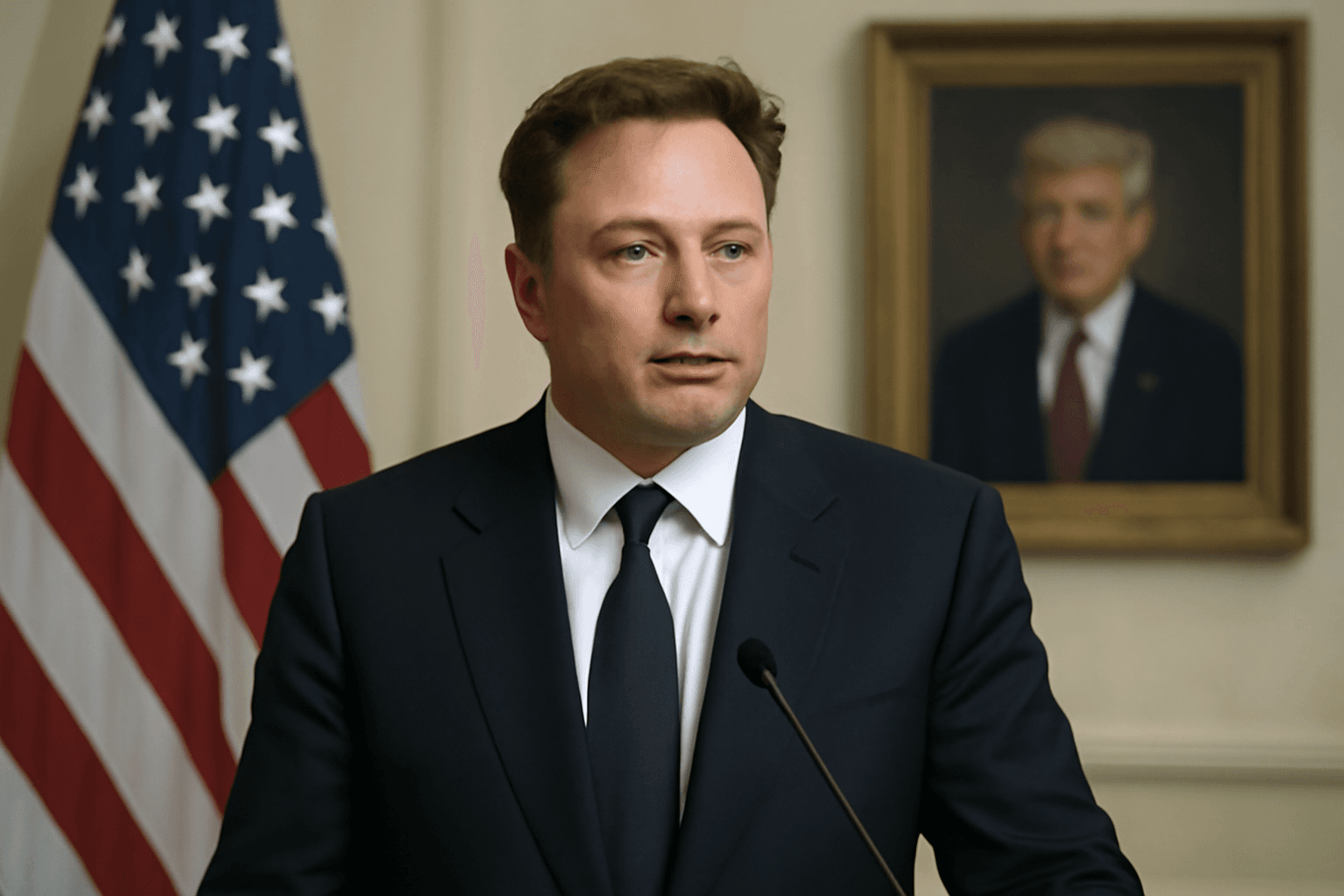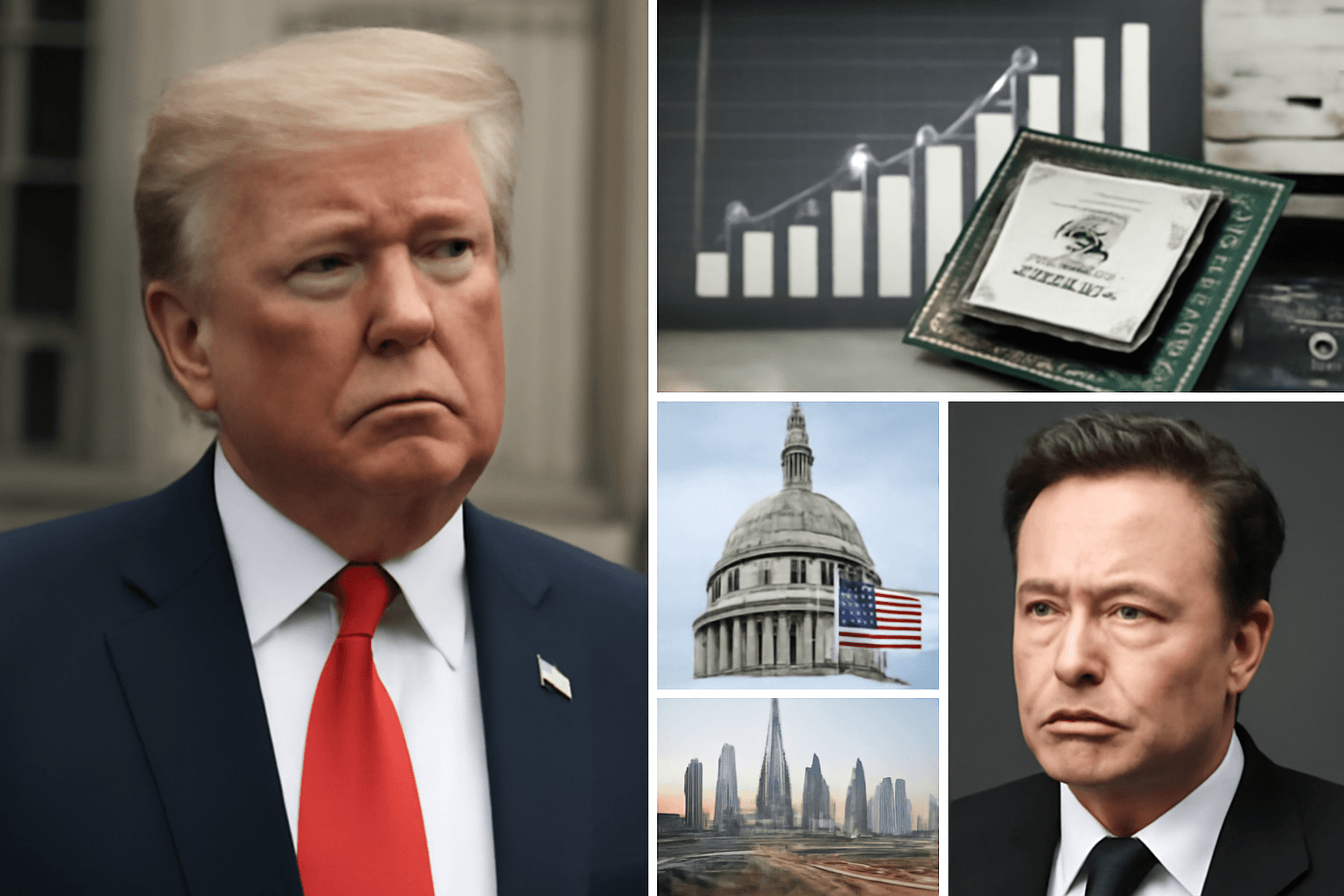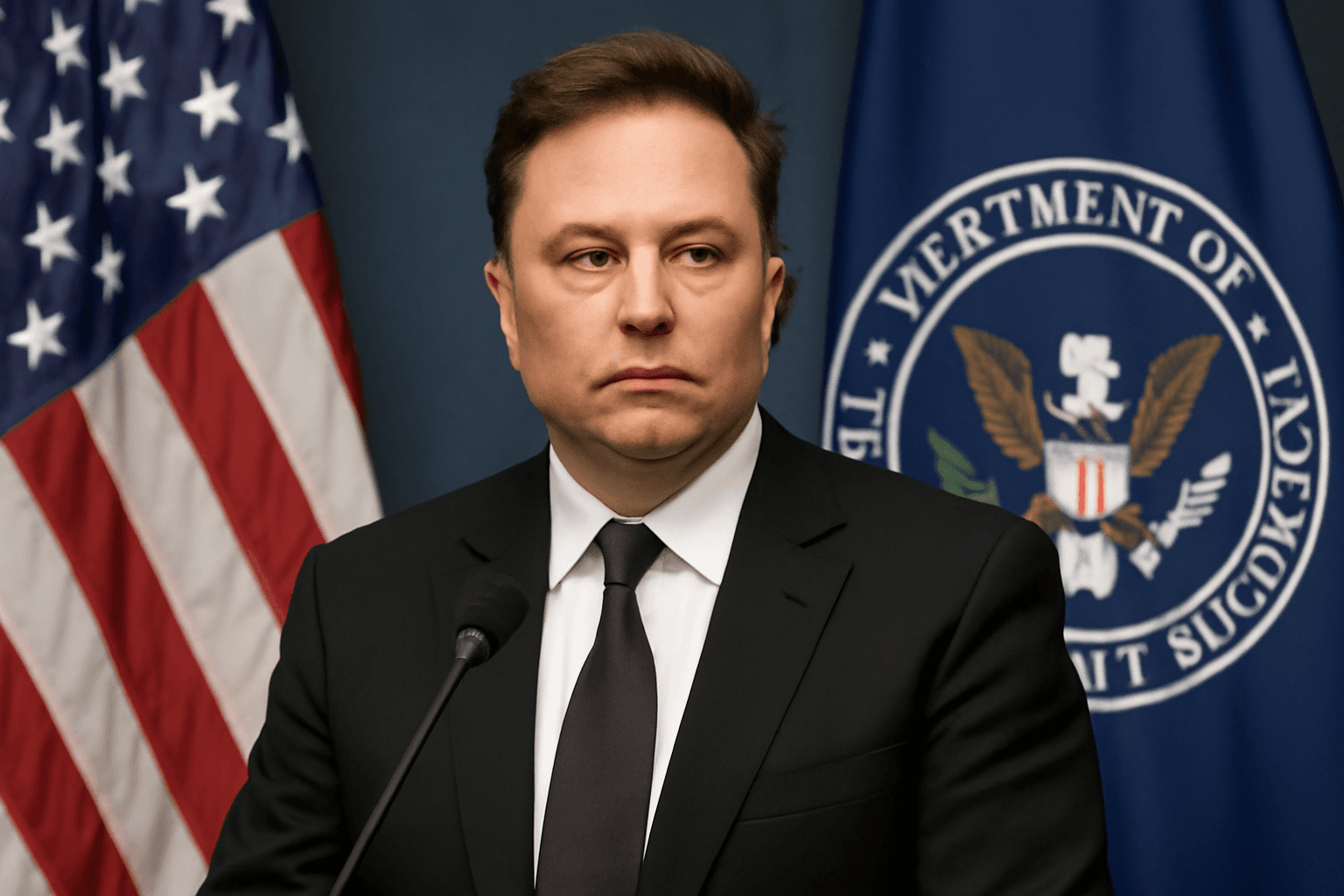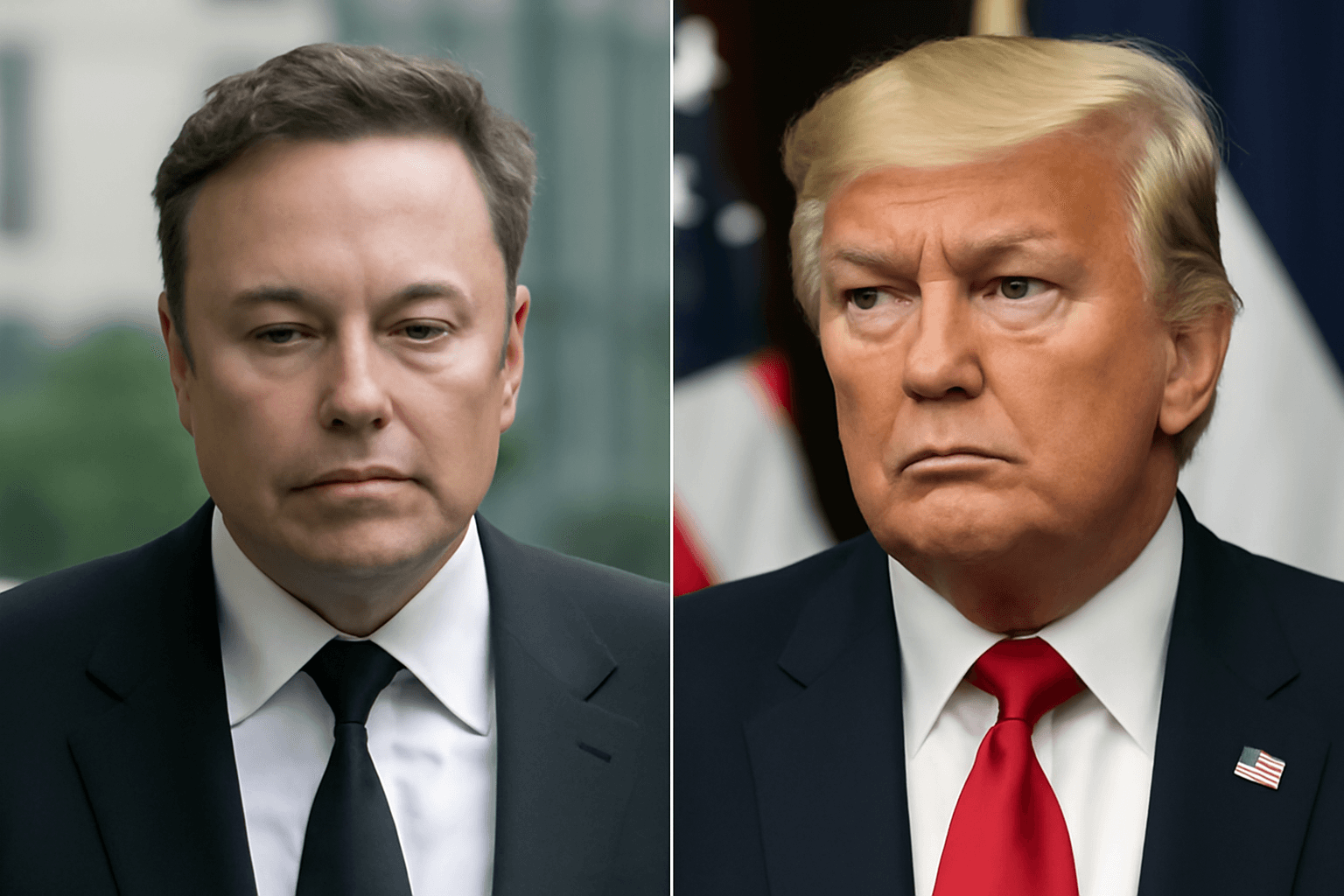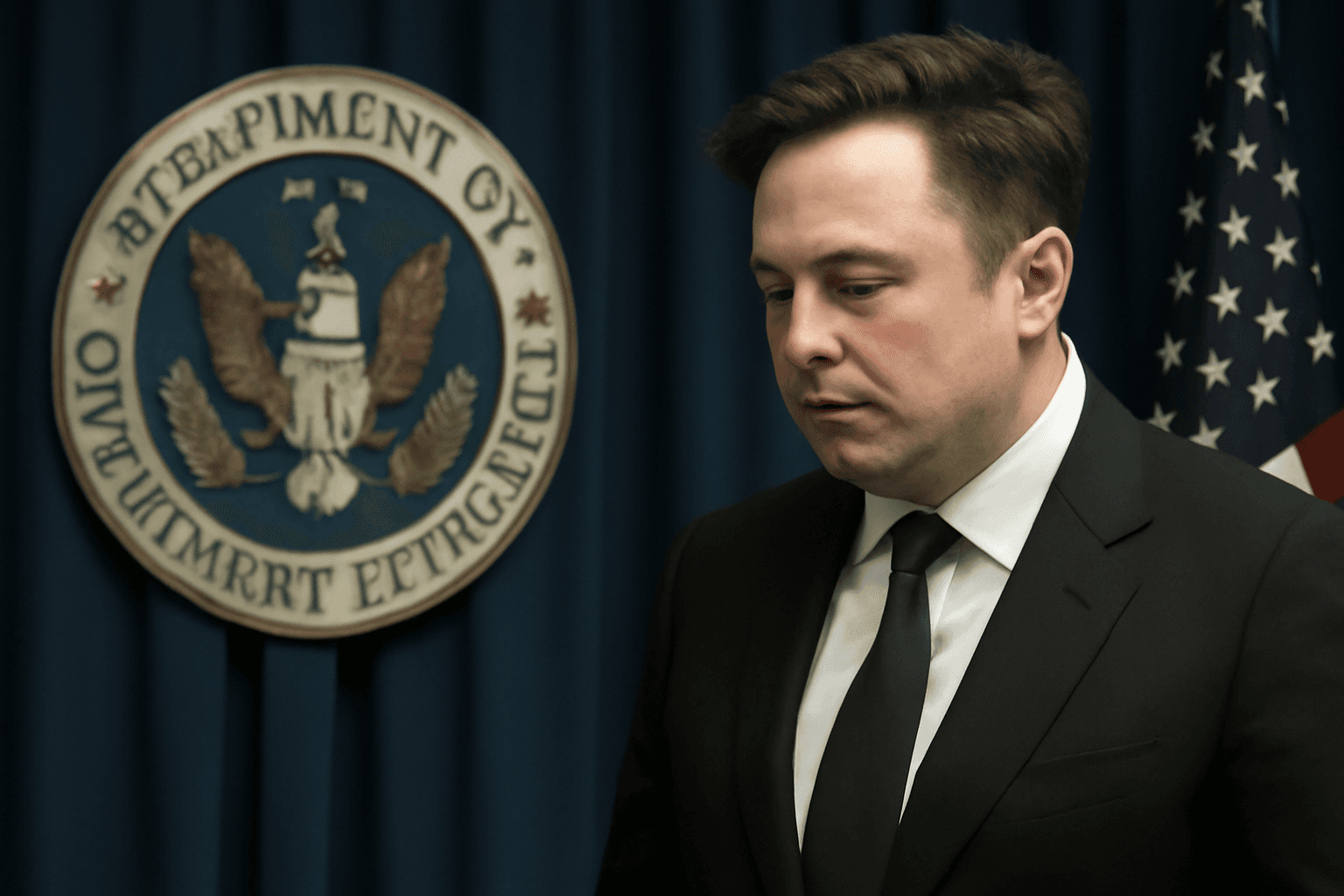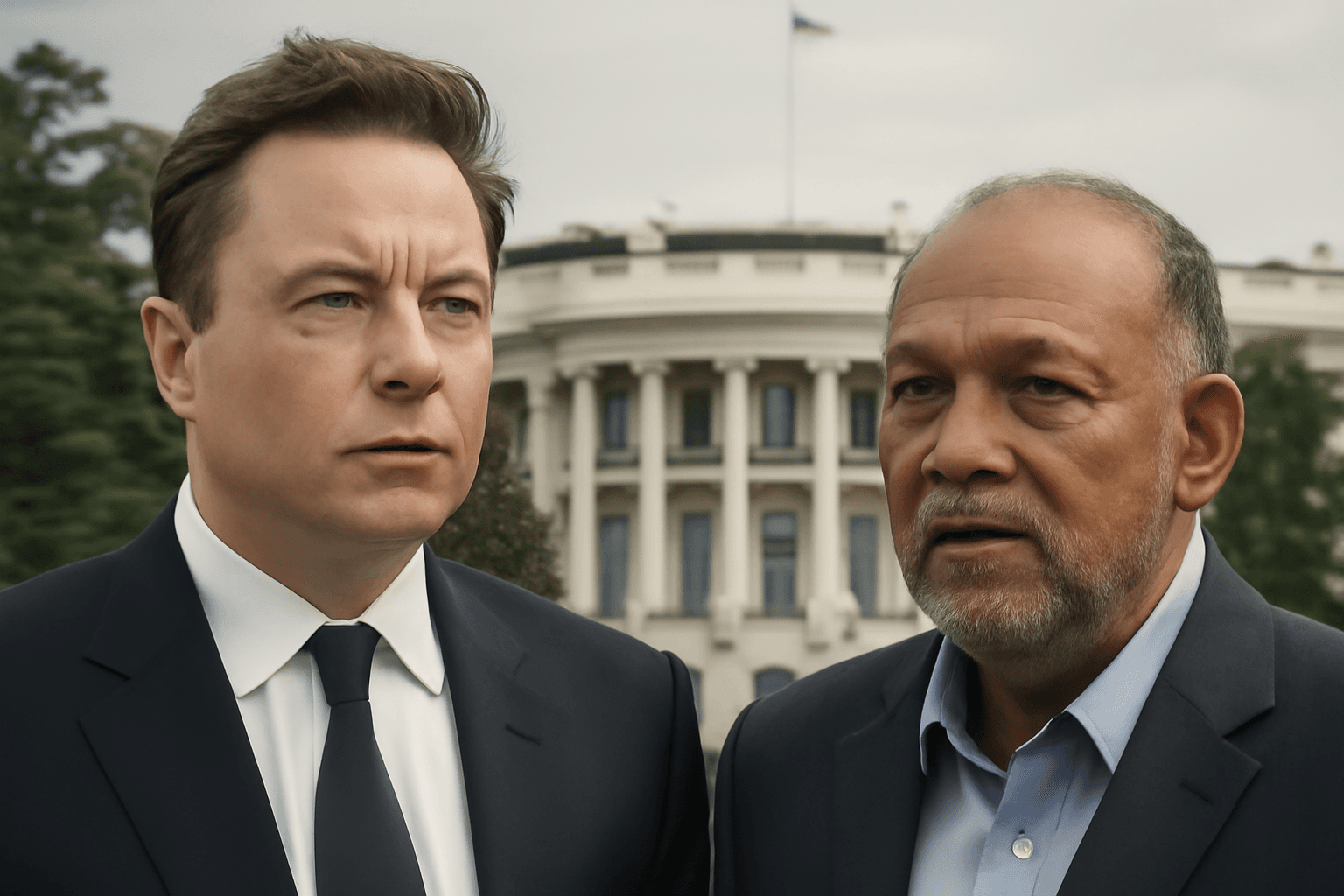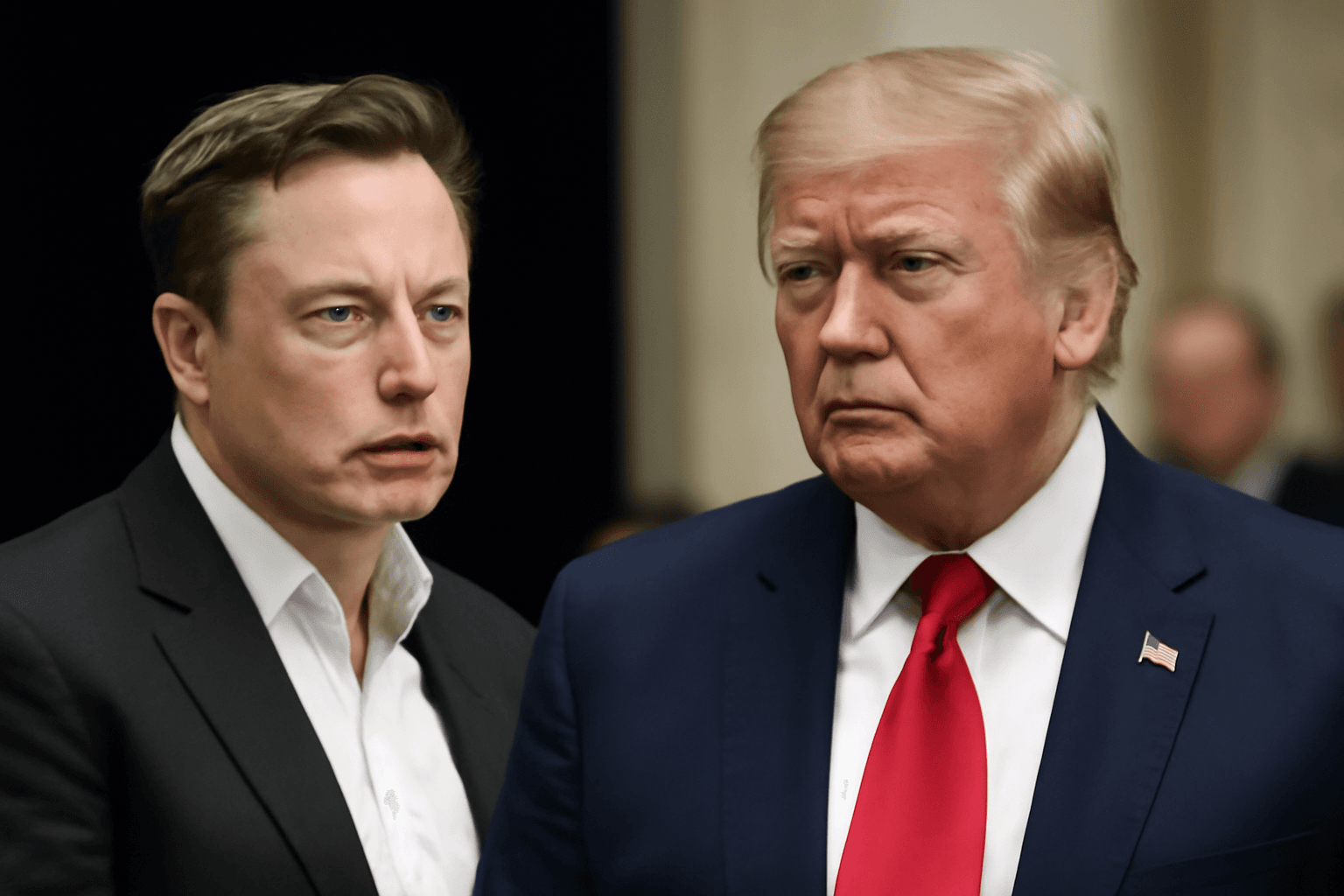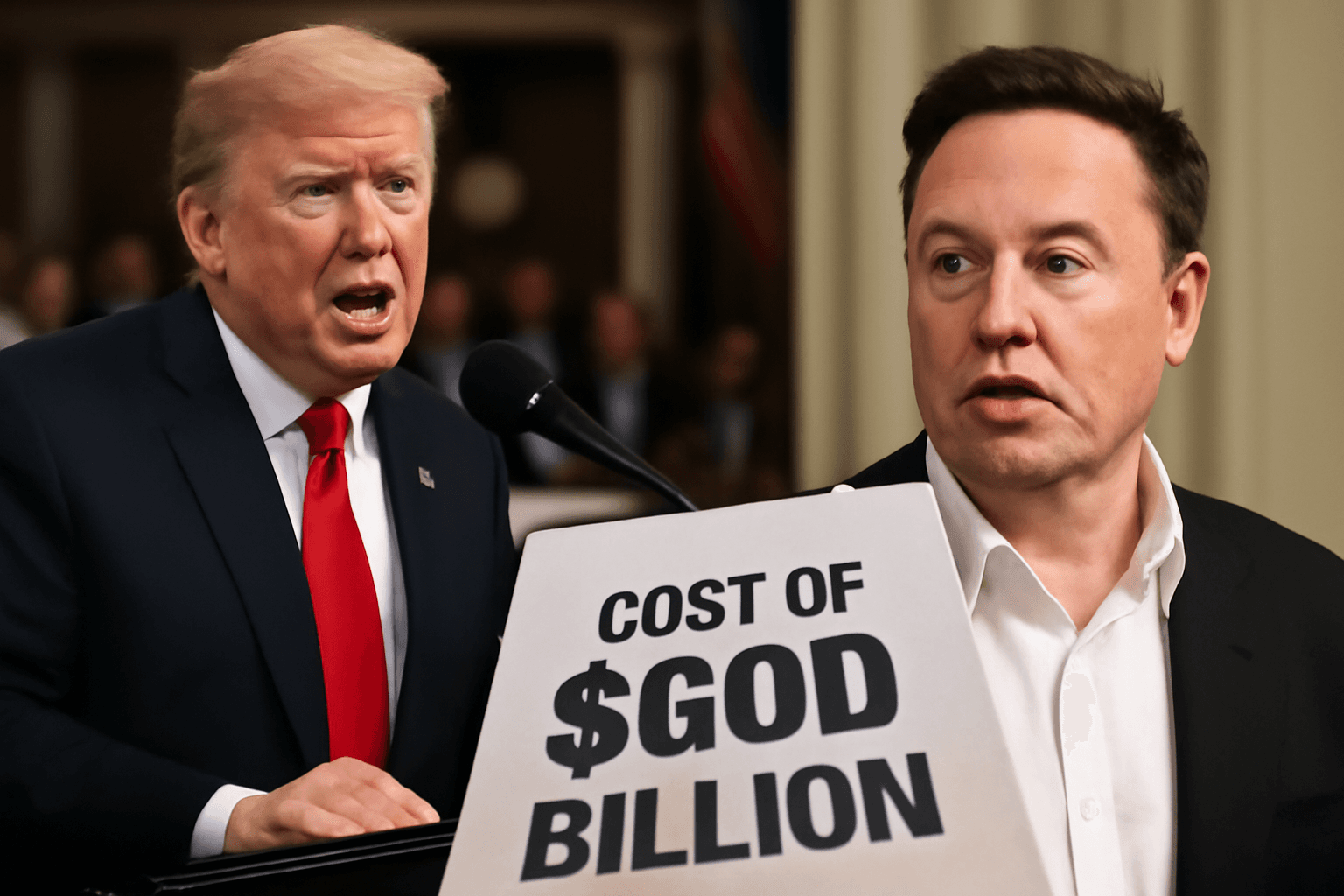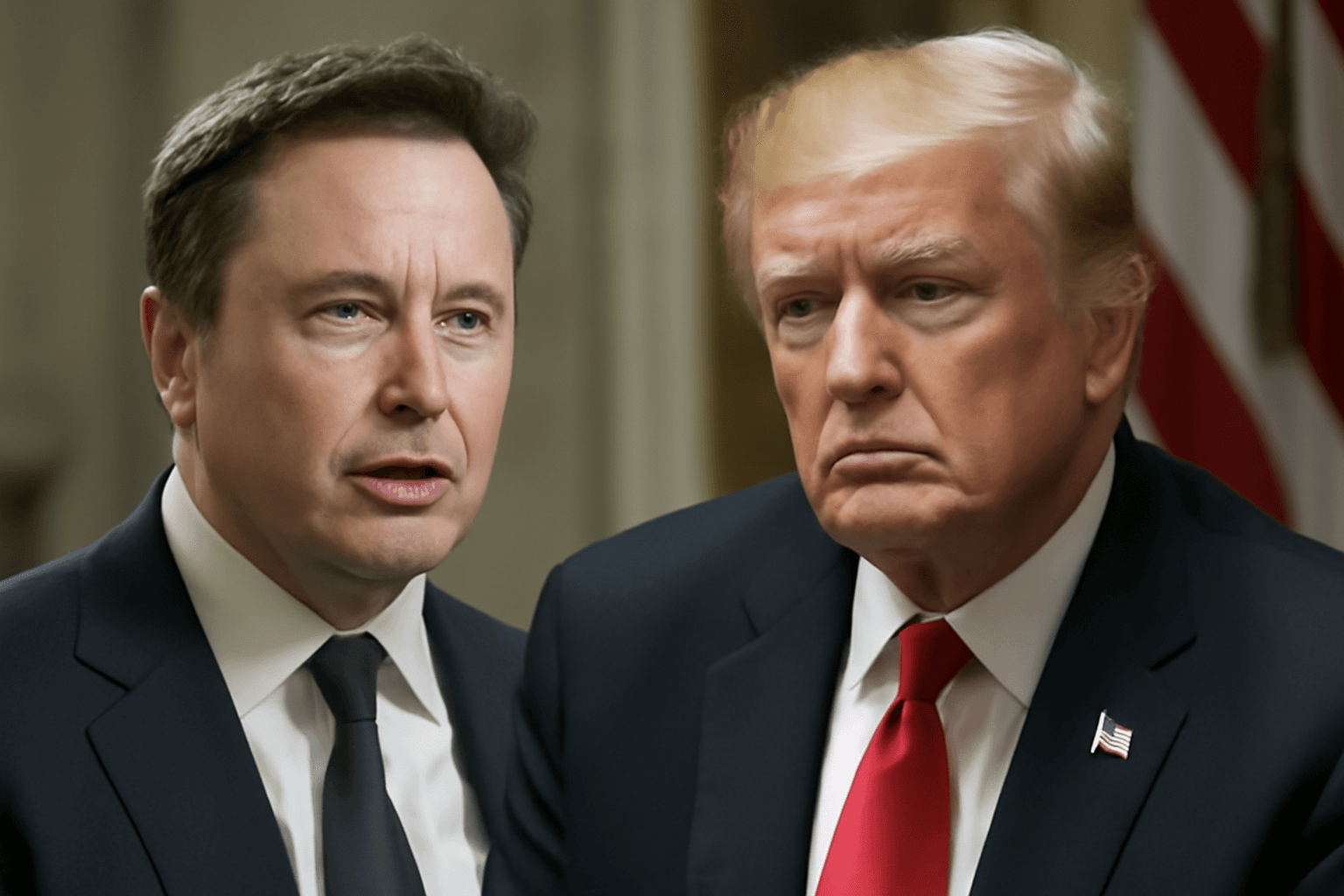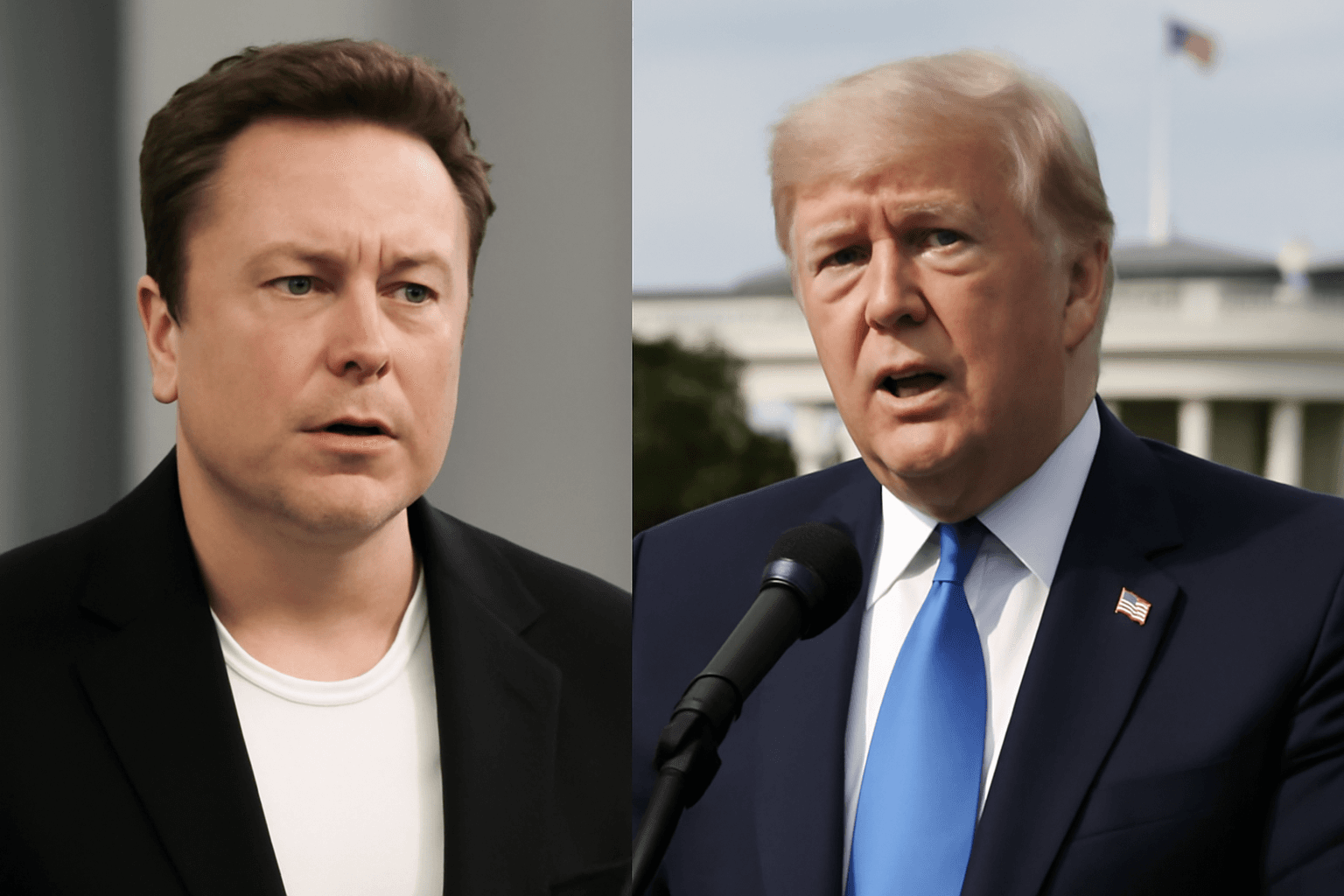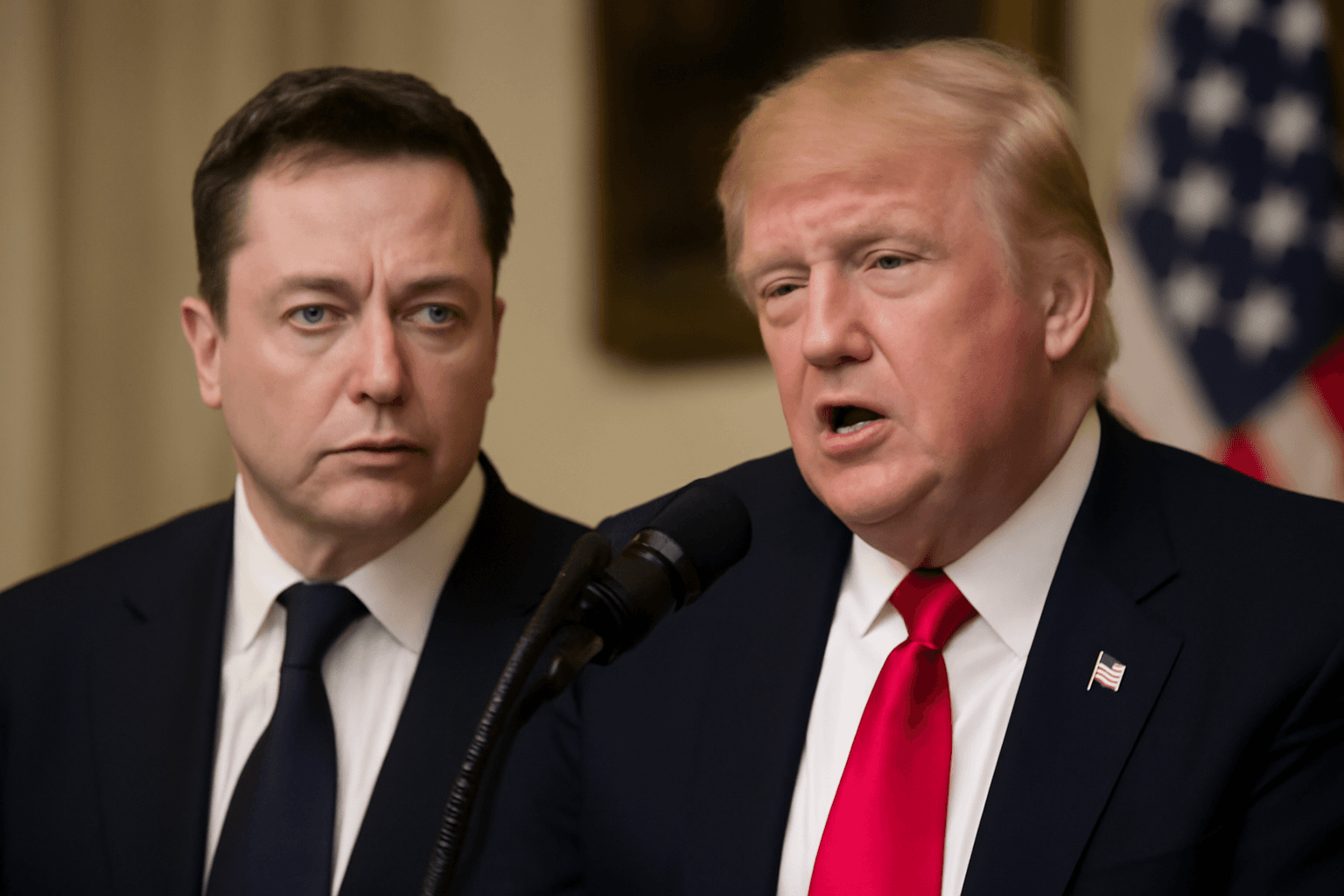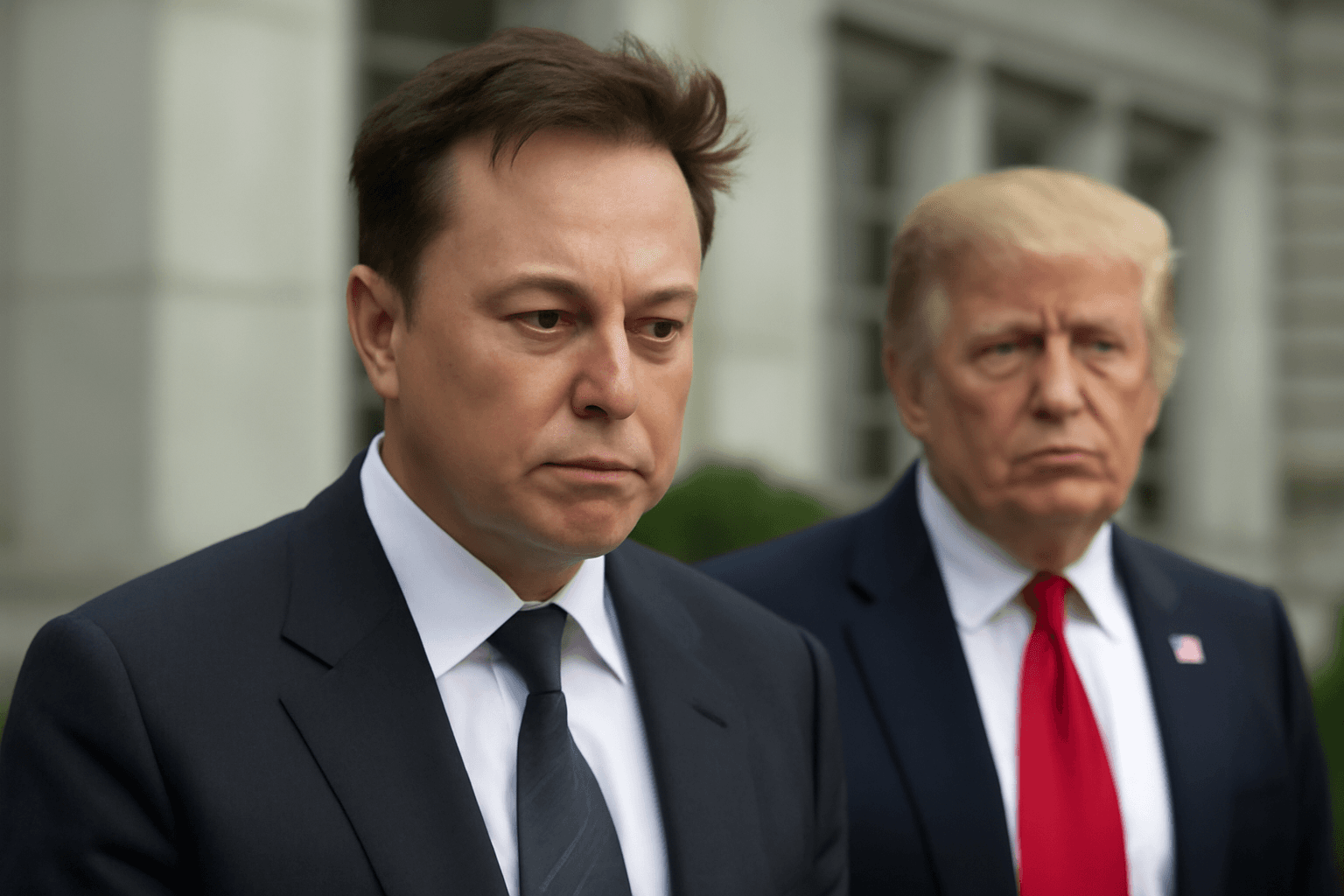Inside the Fracture of Musk and Trump’s High-Profile Alliance
Just weeks ago, an unforgettable moment captured Elon Musk towering behind former President Donald Trump in the Oval Office. The imagery was striking—Musk standing confidently while Trump sat, awkwardly turning his head upward in a subtle power play. But what started as a seemingly strong alliance between two alpha personalities has swiftly unraveled.
Two Titans, One Tumultuous Relationship
Both Musk and Trump, known for their commanding personas and unyielding approaches, initially joined forces with Musk serving as a special advisor focused on streamlining government operations. Yet, beneath the surface, tensions simmered.
As Musk navigated bureaucratic hurdles and political challenges, cracks began to form. These fissures widened rapidly, culminating in their public split.
Economic Pressures and Political Clashes
- Tesla’s plunge: A staggering 71% drop in quarterly profits severely dented Musk’s market standing.
- Investor anxiety: Tesla’s share value tumbled further as the relationship soured.
- Electric vehicle tax threats: Trump’s proposed removal of incentives added fuel to the fire.
- SpaceX controversy: Concerns over the company's involvement in a proposed anti-missile defense plan sparked political backlash.
Another turning point reportedly came when Trump refused to share sensitive Pentagon war plans with Musk, signaling a cooling of their previously warm association.
The Anatomy of the Fallout
What followed was a public spectacle of accusations and distancing. Trump criticized Musk openly, threatening to revoke government contracts. Meanwhile, Musk condemned a congressional spending bill as “a disgusting abomination,” distancing himself from Trump’s political agenda.
Psychological Underpinnings: Contempt and Revenge
This breakdown reveals much about human dynamics among powerful figures.
- Contempt: Recognized by psychologists as the strongest predictor of relationship collapse, contempt embodies moral and social rejection that went to the core of Musk and Trump’s split.
- Disgust: Musk’s vocal disdain over political decisions signals a primal survival mechanism—rejecting what threatens his identity and values.
- Revenge: Studies show that violations of trust activate reward centers in the brain, making retaliation more about personal satisfaction than correction of wrongs.
For narcissistic individuals like Musk and Trump, perceived slights can quickly escalate into full-blown disdain, amplifying the breakdown.
Musk’s Reinvention and the Road Ahead
By publicly distancing himself from Trump, Musk reasserts his image as a bold, independent thinker unbound by political allegiances. This maneuver mirrors past political insiders’ tactics, using pointed criticism as both revenge and self-elevation.
Yet, with two of the most formidable personalities in the spotlight, their fallout invites broader questions: How will Trump respond? And what consequences will this rivalry hold for the political and corporate worlds?
Conclusion
The saga between Elon Musk and Donald Trump is more than a celebrity spat—it’s a revealing case study of pride, power, and the complex dance of high-stakes relationships. As contempt and disgust replace admiration, their fractured alliance offers a potent reminder of how even titans can topple when emotions overwhelm.


